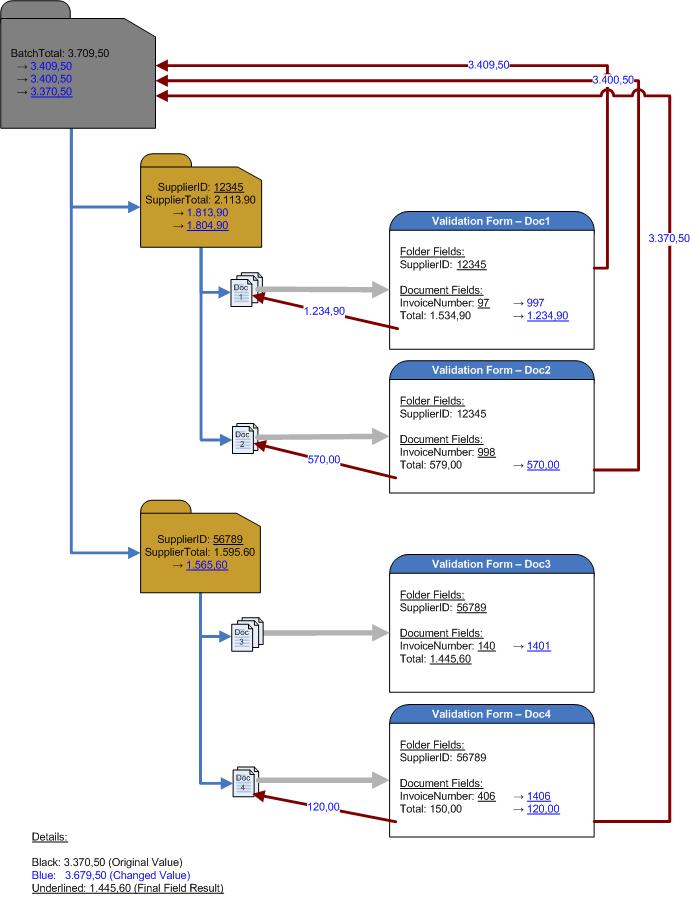Summarize document field data
The foldering can be used to summarize data at different levels. In this example the invoice total is summarized per supplier and for the complete batch. You can find the script needed for the summarization below the figure showing a batch with two folders having each two documents.
